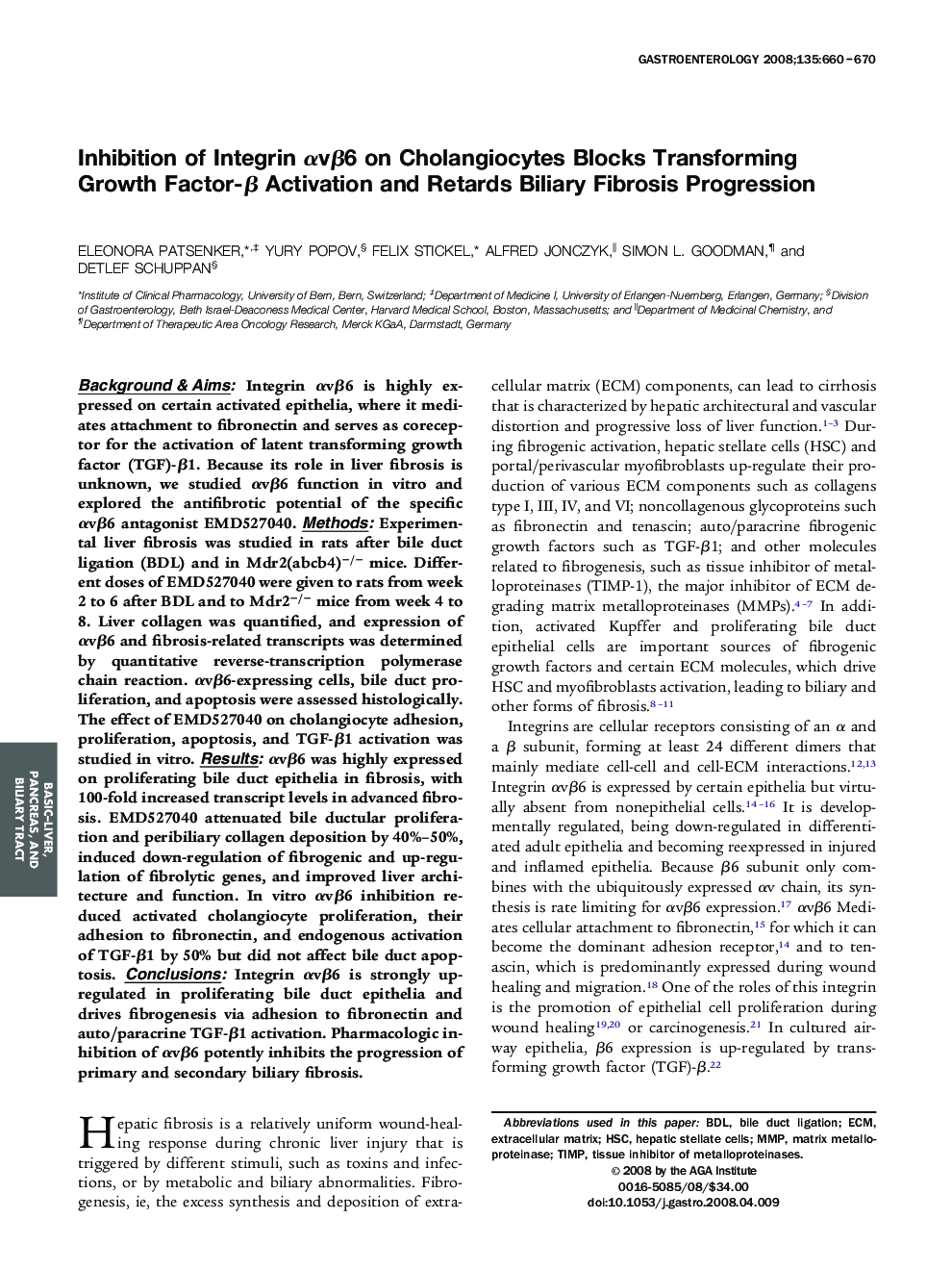| Article ID | Journal | Published Year | Pages | File Type |
|---|---|---|---|---|
| 3299319 | Gastroenterology | 2008 | 11 Pages |
Background & Aims: Integrin αvβ6 is highly expressed on certain activated epithelia, where it mediates attachment to fibronectin and serves as coreceptor for the activation of latent transforming growth factor (TGF)-β1. Because its role in liver fibrosis is unknown, we studied αvβ6 function in vitro and explored the antifibrotic potential of the specific αvβ6 antagonist EMD527040. Methods: Experimental liver fibrosis was studied in rats after bile duct ligation (BDL) and in Mdr2(abcb4)−/− mice. Different doses of EMD527040 were given to rats from week 2 to 6 after BDL and to Mdr2−/− mice from week 4 to 8. Liver collagen was quantified, and expression of αvβ6 and fibrosis-related transcripts was determined by quantitative reverse-transcription polymerase chain reaction. αvβ6-expressing cells, bile duct proliferation, and apoptosis were assessed histologically. The effect of EMD527040 on cholangiocyte adhesion, proliferation, apoptosis, and TGF-β1 activation was studied in vitro. Results: αvβ6 was highly expressed on proliferating bile duct epithelia in fibrosis, with 100-fold increased transcript levels in advanced fibrosis. EMD527040 attenuated bile ductular proliferation and peribiliary collagen deposition by 40%–50%, induced down-regulation of fibrogenic and up-regulation of fibrolytic genes, and improved liver architecture and function. In vitro αvβ6 inhibition reduced activated cholangiocyte proliferation, their adhesion to fibronectin, and endogenous activation of TGF-β1 by 50% but did not affect bile duct apoptosis. Conclusions: Integrin αvβ6 is strongly up-regulated in proliferating bile duct epithelia and drives fibrogenesis via adhesion to fibronectin and auto/paracrine TGF-β1 activation. Pharmacologic inhibition of αvβ6 potently inhibits the progression of primary and secondary biliary fibrosis.
